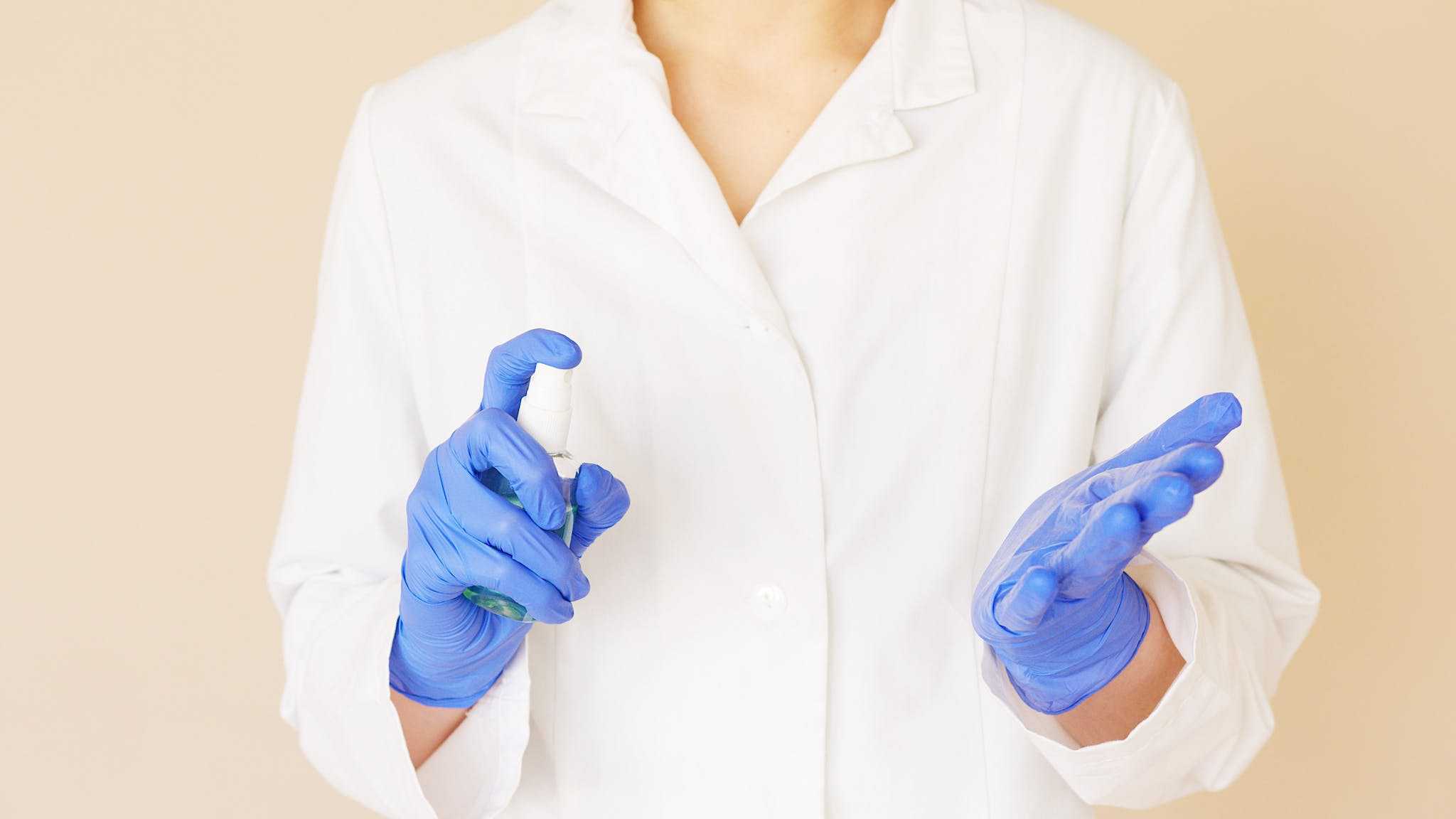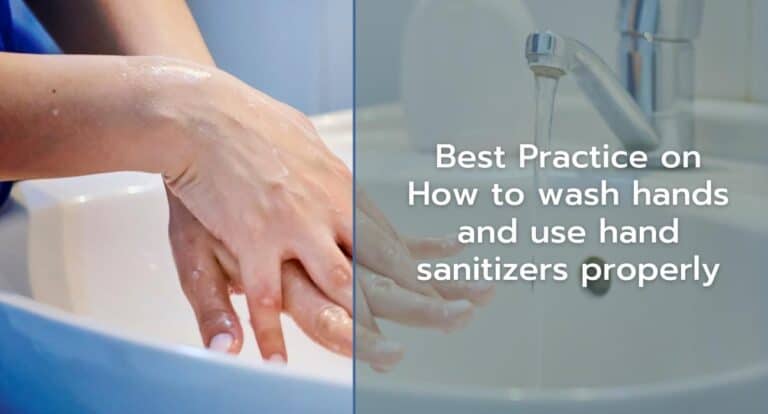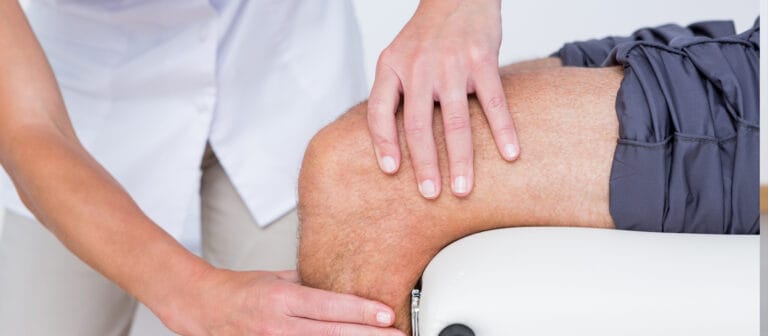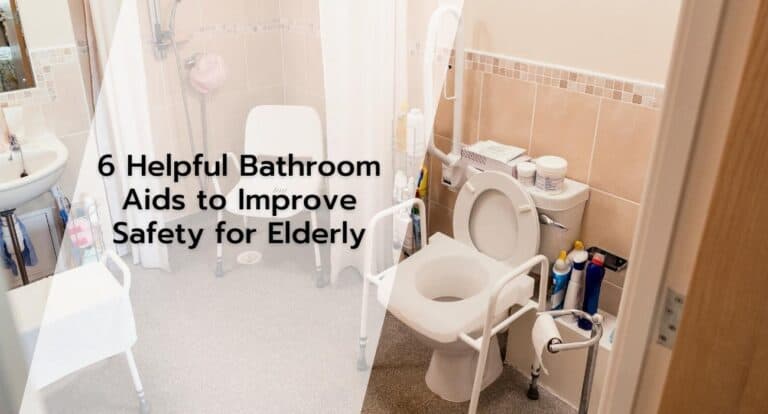Stay Safe and Secure: Senior Safety with Disinfectants

Our immune system weakens as we get older, making us more susceptible to illnesses and infections. This is especially true for seniors who live in long-term care facilities or have underlying health conditions.
In today’s world where hygiene plays an essential role in keeping us safe from the pandemic, it is crucial to understand how disinfectants can help maintain senior safety.
In this blog, we will cover all aspects of disinfectants – from their types to how they work and how you can use them effectively. We will also address any potential risks associated with disinfectant use and provide practical tips on choosing the right one for senior safety.
So, whether you are a caregiver or a senior yourself, read on to keep yourself and your loved ones safe and healthy.
What is the Purpose of Disinfectants in Senior Safety?
Disinfectants effectively kill germs and reduce the risk of illness and infection among seniors. Regularly disinfecting high-touch surfaces like doorknobs, handrails, and countertops is crucial for preventing the spread of viruses and bacteria. This ensures senior safety and provides peace of mind to both seniors and caregivers.
Understanding Disinfectants
It’s essential to understand that different disinfectants have varying effectiveness against different types of germs. To use disinfectants effectively, read and follow the labels and instructions provided.
They can be used on surfaces, objects, and in the air, creating a clean and safe environment. Regular disinfection is crucial for senior safety.
The Science Behind Disinfectants
Disinfectants work by dismantling the structure of germs, rendering them unable to reproduce. They typically contain chemicals that disrupt the germs’ membranes, proteins, or enzymes.
The effectiveness of a disinfectant is often measured by its ability to kill specific pathogens like bacteria, fungi, or viruses, such as salmonella.
Factors such as concentration, contact time, and temperature can affect how well a disinfectant works. Different disinfectant formulations may target different types of germs.
Types of Disinfectants Suitable for Seniors
When it comes to senior safety with disinfectants, there are various types to consider. Commercial-grade disinfectants like sprays and wipes are convenient and effective options.
On the other hand, homemade disinfectants using household bleach, vinegar, or isopropyl alcohol can also do the job.
It’s important to choose disinfectants that are safe for seniors, avoiding harsh chemicals that may cause irritation or respiratory issues.
Seniors with specific health conditions may require milder disinfectant options, so consulting healthcare professionals or geriatric experts can help make the right choice.
Commercial-Grade Disinfectants
When it comes to ensuring senior safety, commercial-grade disinfectants play a crucial role. These disinfectants, such as those containing disinfectant mist or wipes, are designed to be effective in killing germs on various surfaces. It is important to choose disinfectants that are registered with the Environmental Protection Agency (EPA) for assurance of their effectiveness.
Some commercial disinfectants are even specifically formulated to target and eliminate specific pathogens, such as ammonia, providing targeted disinfection for germs of concern.
Following the manufacturer’s instructions is essential for the proper use of these commercial-grade disinfectants.
Home-Made Disinfectants
When it comes to senior safety with disinfectants, there are homemade options that can be effective and gentle. Household bleach, diluted according to recommended ratios, can be used as a powerful disinfectant against common pathogens, including tuberculosis.
Vinegar, being a mild acid, is suitable for certain surfaces like countertops or floors. Isopropyl alcohol, when appropriately diluted, is another option for disinfection.
Making homemade disinfectants allows control over ingredients, minimizing potential irritants for seniors. Always follow safety precautions and guidelines while preparing and using homemade disinfectants.
What is a Very Safe and Useful Type of Disinfectant?
“Quats,” also known as quaternary ammonium compounds, are highly effective and safe disinfectants. In just 10 minutes, quat solutions can disinfect various tools and objects. It is crucial to fully submerge the items being disinfected, ensuring that there is sufficient liquid to cover all surfaces of the item.
How to Use Disinfectants Effectively for Senior Safety
Stay safe and secure by disinfecting surfaces correctly. This is especially vital during the current COVID-19 pandemic. To kill germs effectively, follow the recommended time for contact specified by the disinfectant.
Use disinfectant wipes or sprays to cover all surfaces, including high-touch areas and mould-prone areas. Cleaning surfaces consistently and thoroughly will maintain disinfection standards.
Moreover, check if the disinfectant is compatible with different surfaces to avoid any damage or discolouration.
Proper Application of Disinfectants
Properly applying disinfectants is vital for effective senior safety:
- Start by removing visible dirt, debris, or organic matter from surfaces before applying the disinfectant.
- Ensure even coverage by using appropriate tools like spray bottles, wipes, or cleaning cloths.
- Allow the disinfectant to remain on surfaces for the recommended contact time, as specified by the product.
- Avoid wiping surfaces immediately to give the disinfectant enough time to work effectively.
- Proper ventilation is essential, especially when using disinfectant sprays, to prevent inhaling fumes or irritants from heat sources or electrical equipment in use.
Frequency of Disinfecting
The frequency of disinfecting surfaces can vary depending on factors such as usage, number of occupants, and risk of exposure to pathogens.
High-touch surfaces like doorknobs, light switches, and remote controls may require daily disinfection. Shared spaces like bathrooms or kitchens may need more frequent disinfection, especially if used by multiple individuals.
It is important to consider the recommendations of health authorities, such as the CDC, when determining the appropriate disinfection frequency. Regular disinfection, combined with other preventive measures, can help maintain a safer environment for seniors.
What are the Hazards of Working with Disinfectants?
Staying safe while using disinfectants is important. There are risks of toxic fumes, skin or eye irritation, and damage to surfaces or equipment.
Seniors, especially those with respiratory conditions, are more susceptible to these risks. Following safety guidelines can help minimize them.
Some disinfectants could irritate the skin, eyes, or respiratory system. Corrosive disinfectants could seriously harm the skin or eyes. Disinfectants that become airborne can cause breathing problems in poorly ventilated areas.
What are Some Safety Tips When Handling Disinfectants?
When handling disinfectants, it is crucial to prioritize safety. Here are some essential tips to keep in mind:
1. Read the instructions: Always carefully read and follow the instructions provided by the manufacturer on the disinfectant label. This will help you understand its proper usage, dilution ratios, and any specific precautions.
2. Ensure proper ventilation: Adequate ventilation is key when working with disinfectants. Open windows or doors to allow fresh air to circulate and reduce the concentration of fumes. If possible, use fans or exhaust systems to further improve air circulation.
3. Wear protective gear: To protect yourself from potential hazards, it is important to wear appropriate personal protective equipment (PPE). This may include gloves, goggles a face shield, and a mask. PPE acts as a barrier between your skin, eyes, and respiratory system, and the disinfectant.
4. Avoid mixing chemicals: Mixing different disinfectants or other cleaning chemicals can have harmful consequences. Some combinations can produce toxic gases or react violently, posing serious health risks. Stick to using one disinfectant at a time and follow the instructions for proper dilution.
5. Use in well-ventilated areas: When using disinfectants, choose a well-ventilated area to minimize the risk of breathing in harmful fumes. If possible, work outdoors or in a room with open windows and good airflow.
6. Store properly: After use, ensure that disinfectants are stored in their original containers and kept in a secure location away from children or pets. Follow any specific storage instructions provided by the manufacturer to maintain their effectiveness and safety.
7. Clean up spills promptly: Accidental spills should be cleaned up immediately to prevent slips, falls, or further exposure to the disinfectant.
Tips to Choose the Right Disinfectants for Senior Safety
In conclusion, Maintaining a clean and healthy environment is crucial for senior safety. Understand the different types of disinfectants and their proper usage.
Follow recommended guidelines for application and frequency of use, whether using commercial-grade or homemade solutions. Use disinfectants that are safe for seniors and compatible with their living spaces.
Choose the right disinfectants, such as Dettol spray, to effectively kill germs and mildew. Look for EPA-approved products for disease control.
Household bleach diluted in water is also safe to use around seniors. Read the instructions on the label for proper usage and cleaning consistency.




